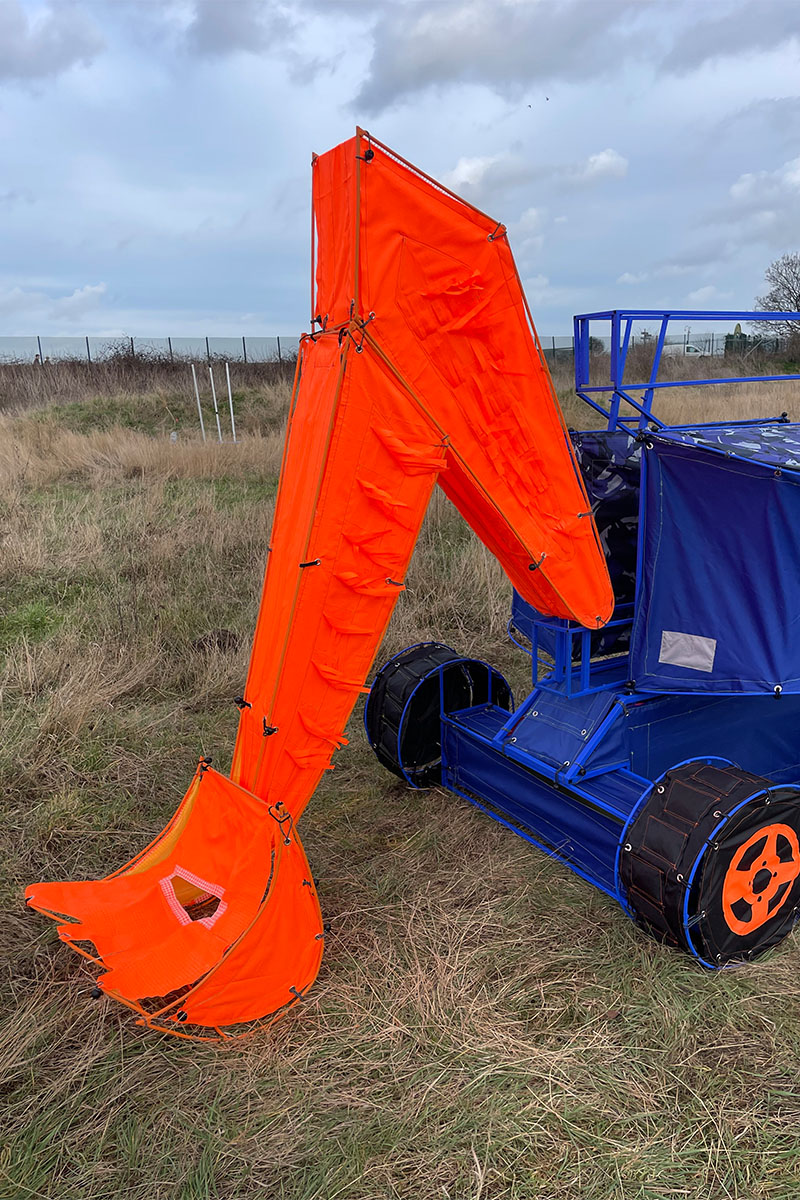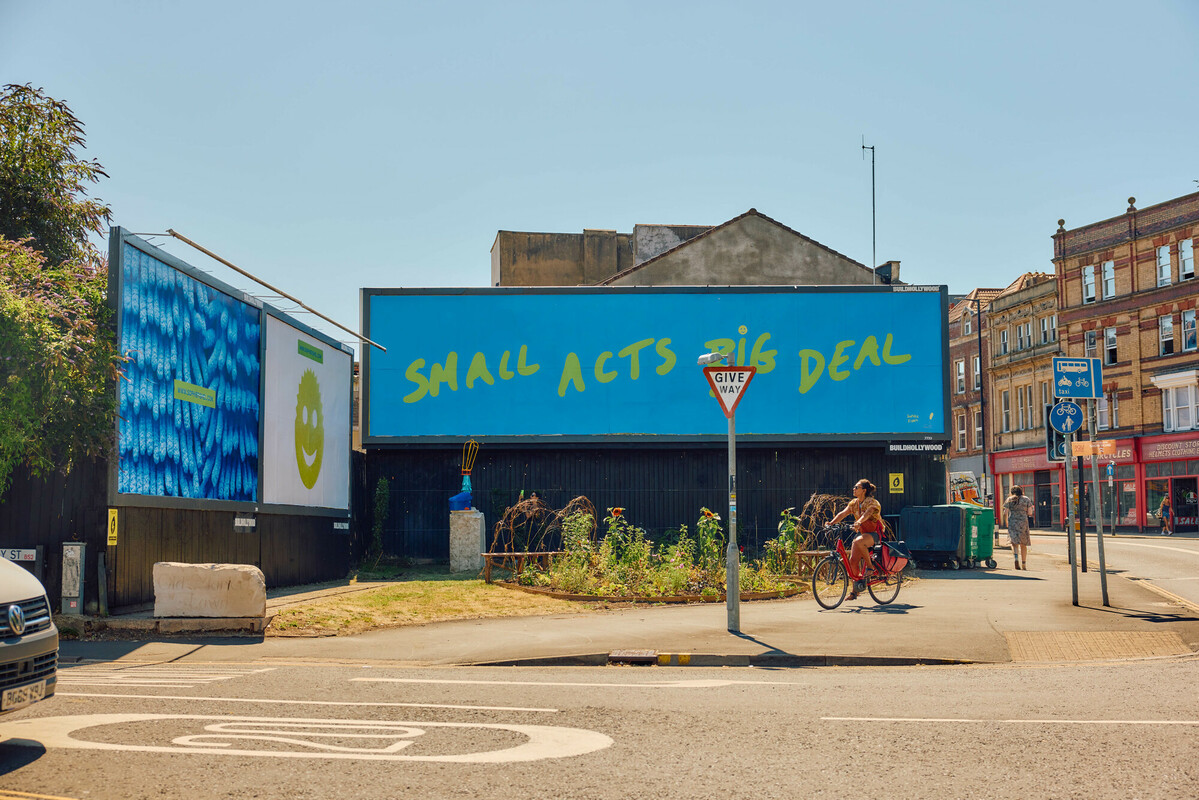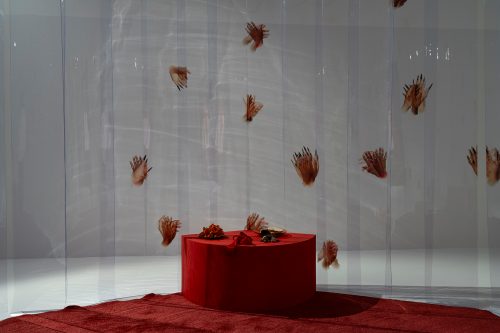Your Space Or Mine
Sophie Fishel: Praise You 2.0
The new commission for the Old Market Lawn Your Space or Mine site in Bristol brings a joyous injection of colour, humour and compassion to this bustling inner-city crossroads courtesy of Sophie Fishel. Fishel, who works full-time as a physiotherapist for the NHS alongside her art practice, brings to the fore her core values of care and human respect as well as her long standing belief in art as a means to resist societal injustice. It is a fitting accompaniment to the site’s new community garden, planted in collaboration with Rockaway Park, which features two flower beds envisaged as a pair of living, breathing lungs for the city.
In this new work, set on a central stone plinth – which will also be flanked by three large-scale billboards for the launch – Fishel overturns what we might expect of public sculpture. Given the toppling of the infamous Colston Statue during the Black Lives Matter protests of 2020, Bristol is sensitive to what gets placed on its public plinths. So often the history of sculpture in public places has tended toward the overblown, commemorating public figures – monarchs, emperors, military leaders, slave traders – deemed worthy of monumentalising. Fishel cuts through all that. Rather than a recognisable figure, aloof and standing over us, she elevates one part of an unspecified body: a single limb. Titled Praise You 2.0 (2025) her leg is an assemblage constructed from sheet metal, coloured in vibrant royal blue and lime green, with its joints and internal framework exposed, giving it an unapologetically DIY feel. Praise You 2.0 pays tribute to strength, vulnerability and fun, qualities that Fishel argues should sit side by side, rather than in opposition, in a functional society.
Here Fishel talks to Lizzie Lloyd about the unsung value of domestic workers in the NHS. She touches on the power of art to share common human experiences, the urgency of fighting political injustices, and the everyday individual actions that make all our lives a little better.
16.07.25
Words by


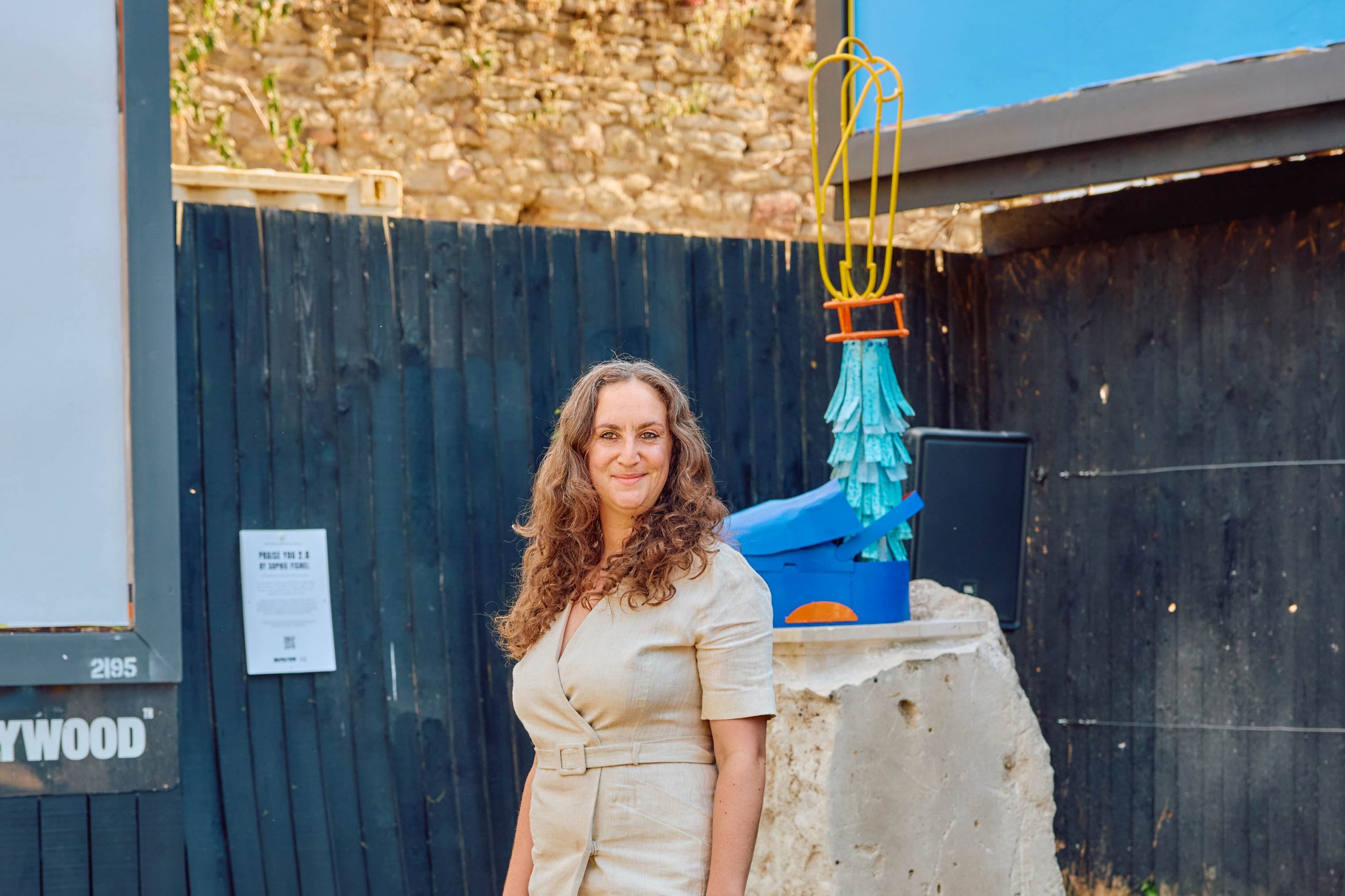
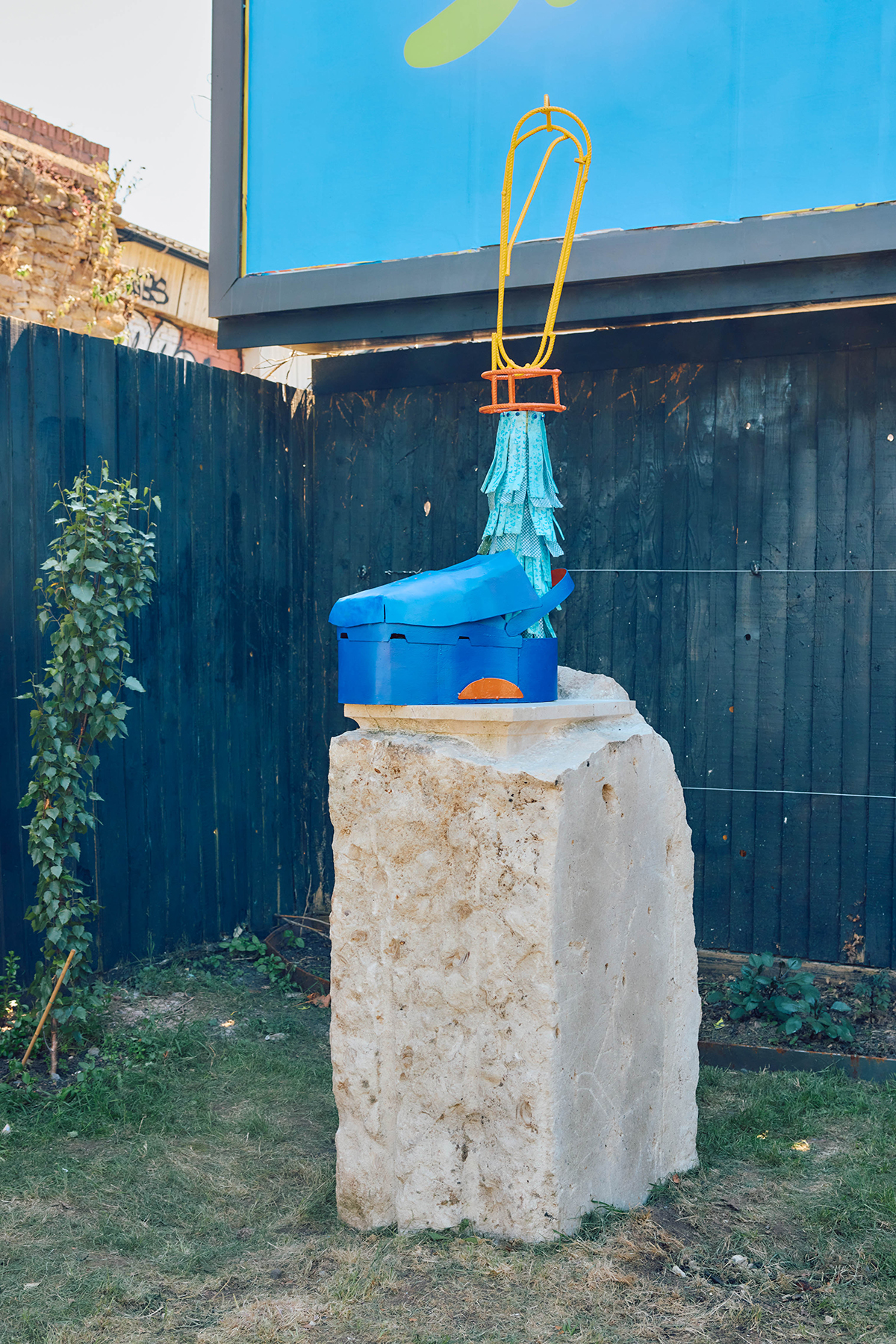 Photography by Emli Bendixen.
Photography by Emli Bendixen.
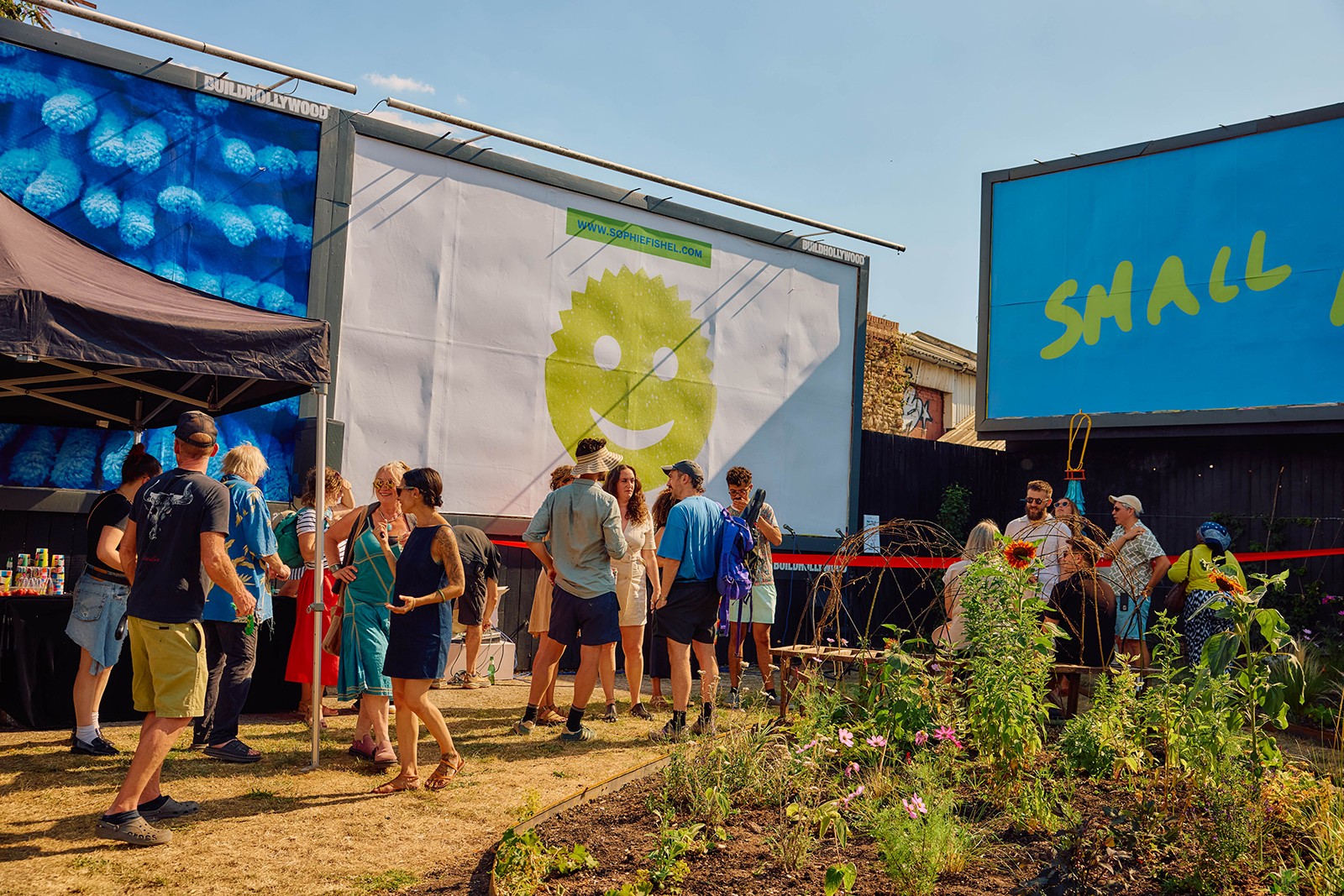 Photography by Emli Bendixen.
Photography by Emli Bendixen.









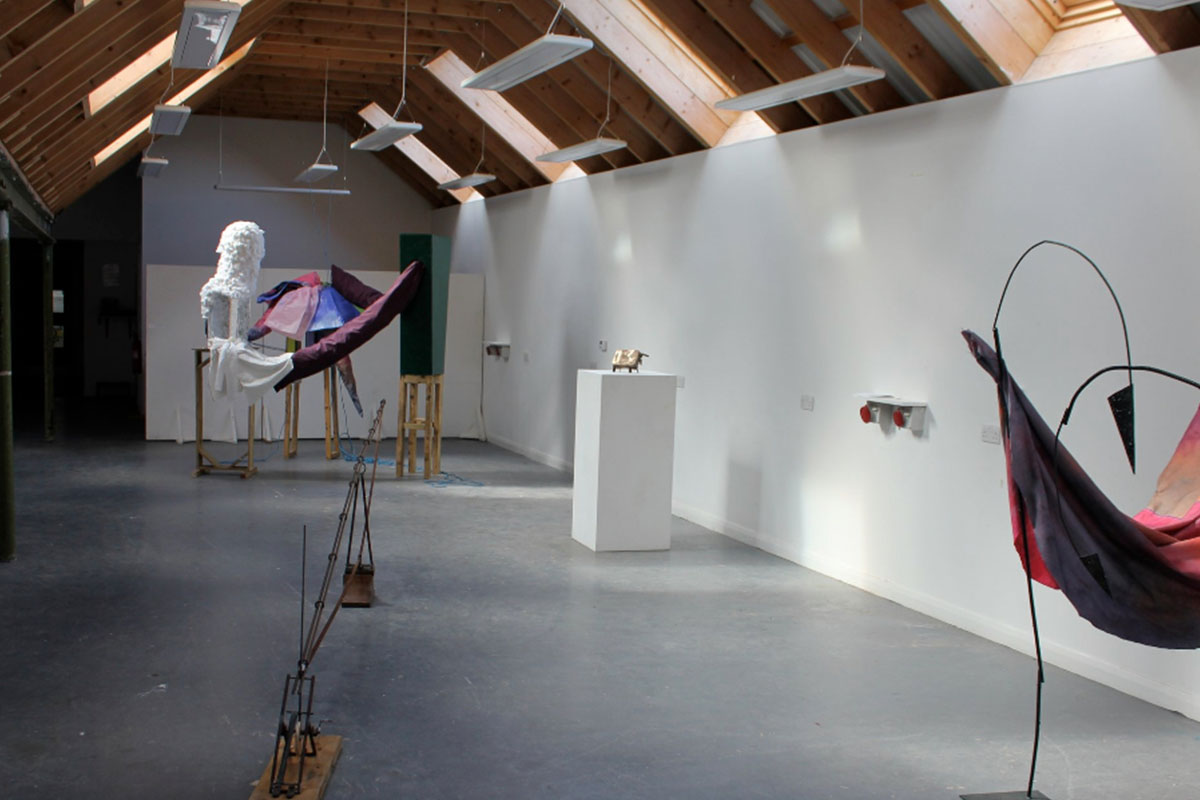
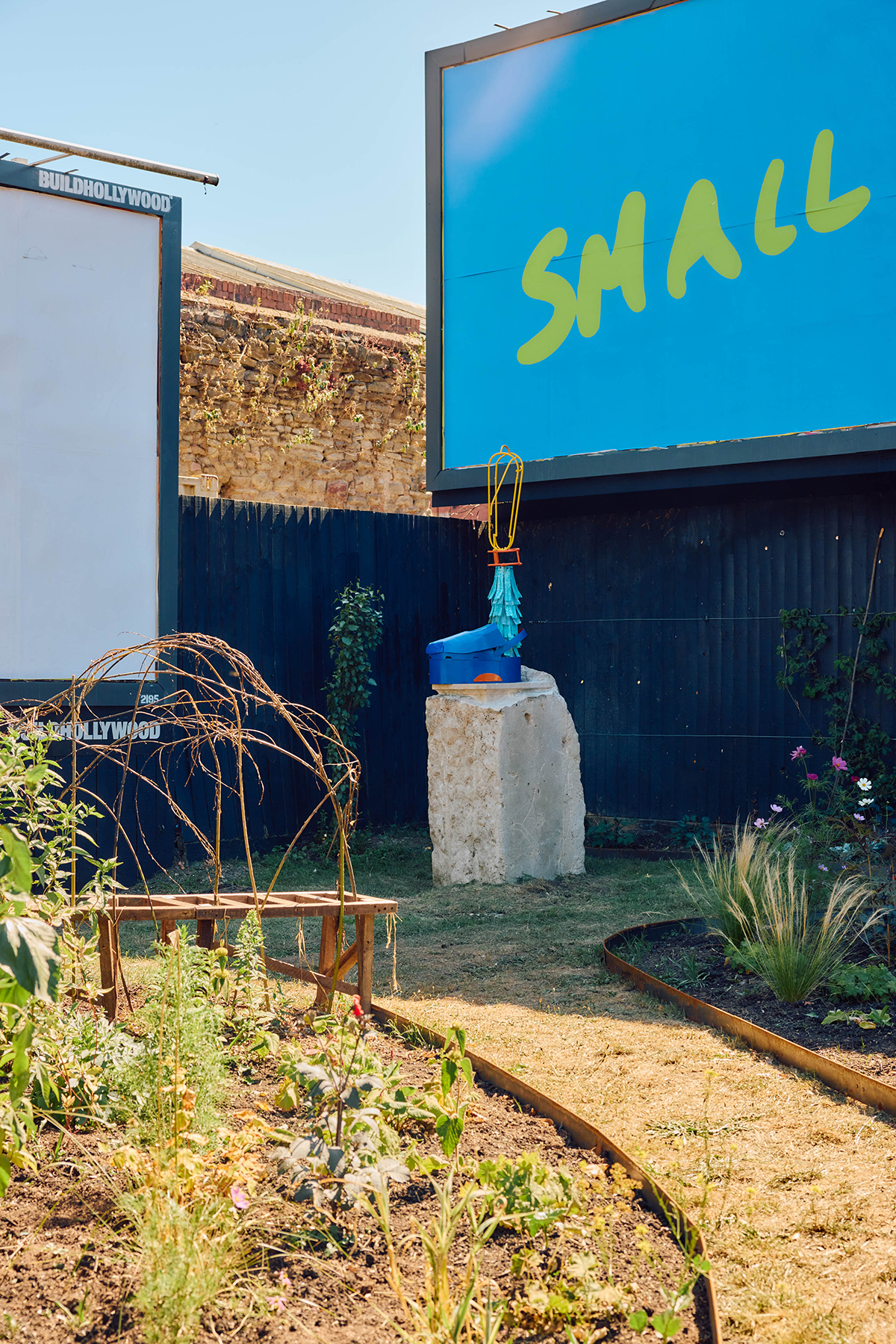 Photography by Emli Bendixen.
Photography by Emli Bendixen.
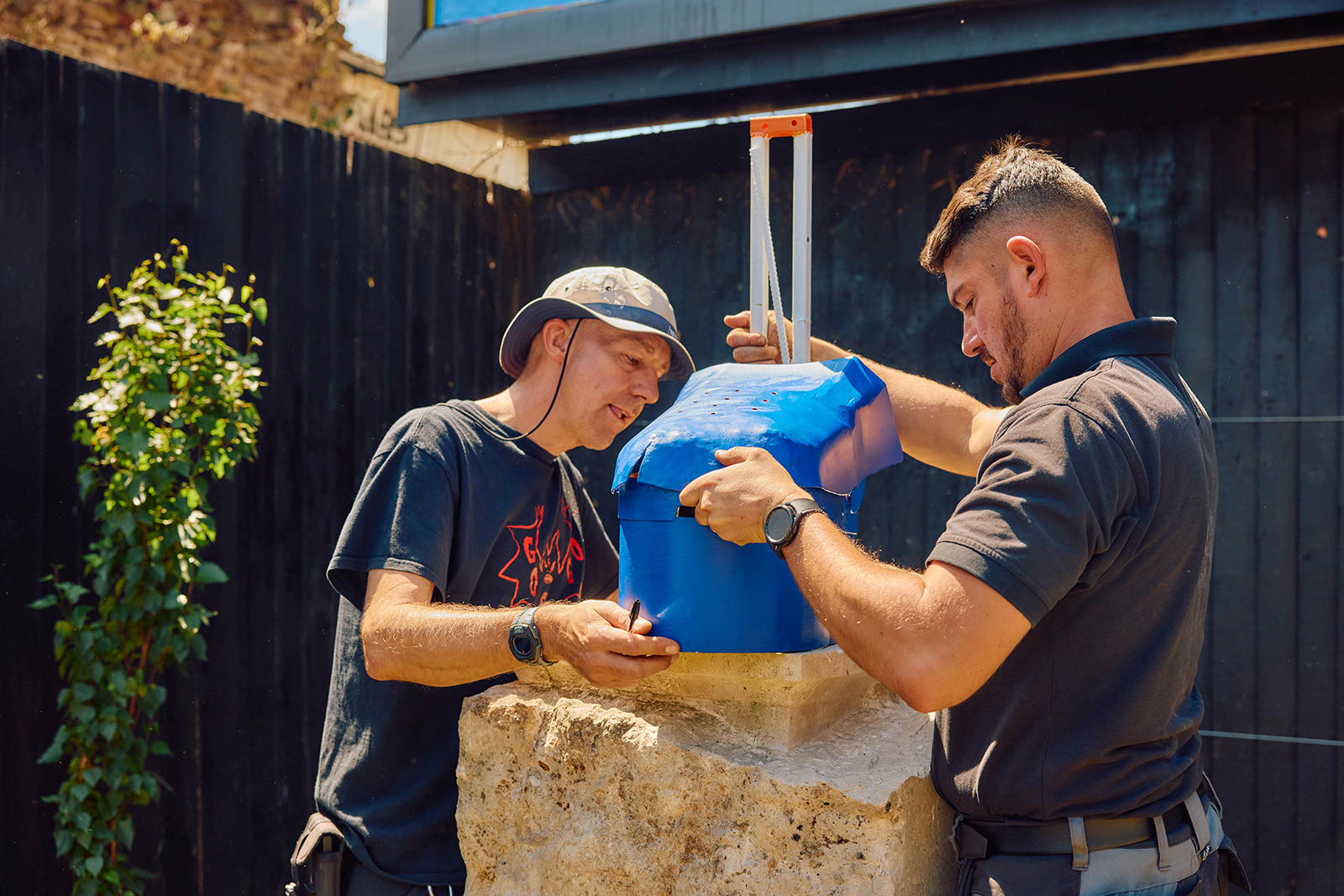
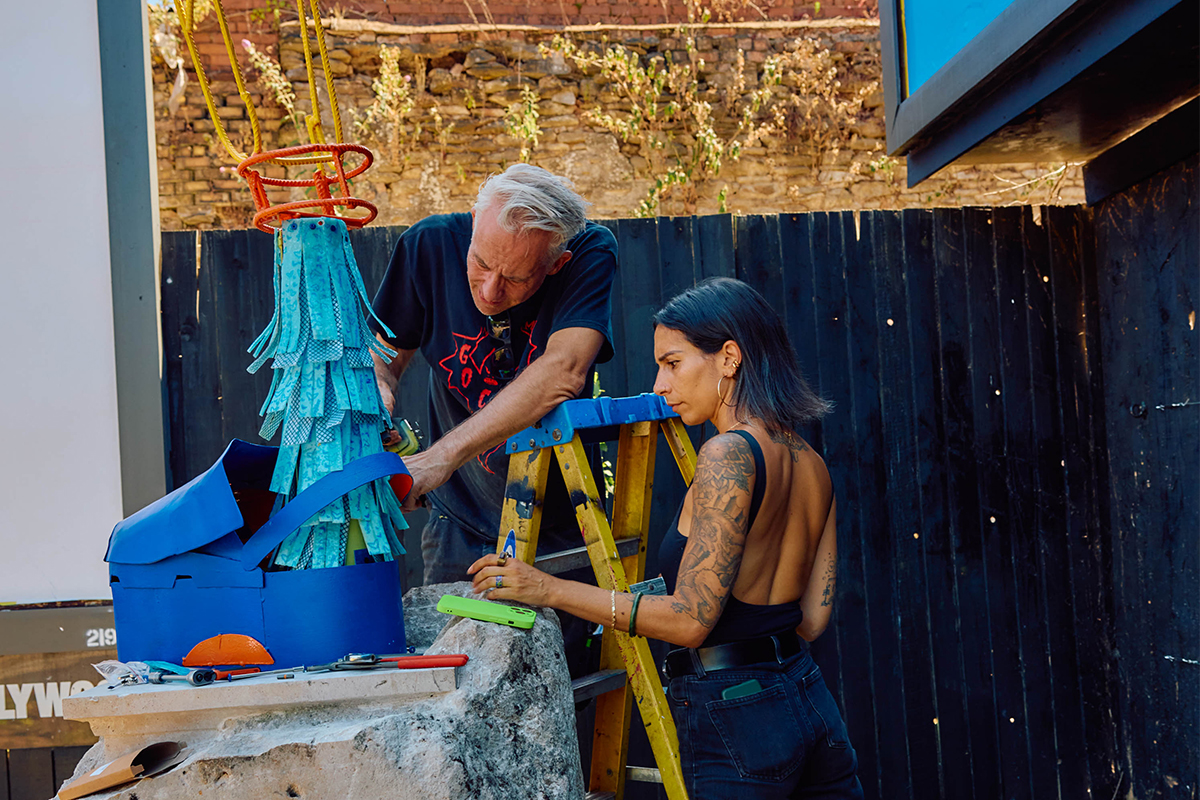
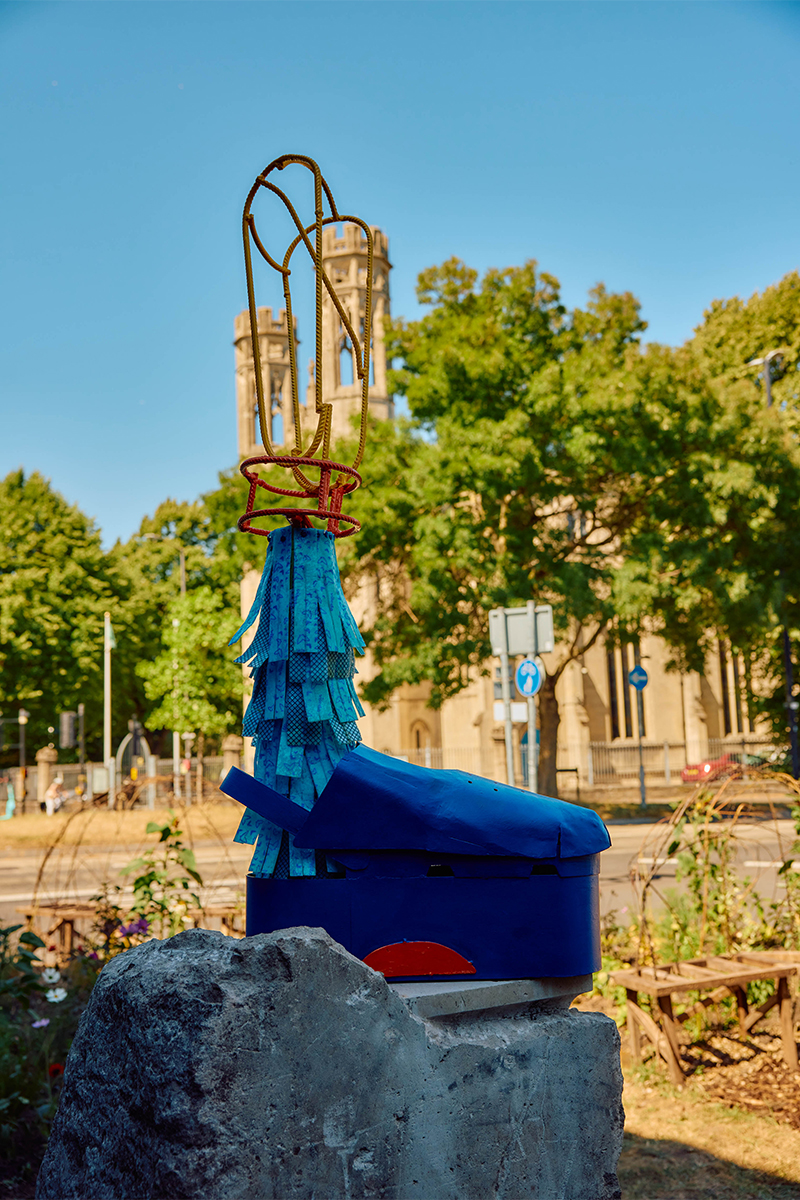
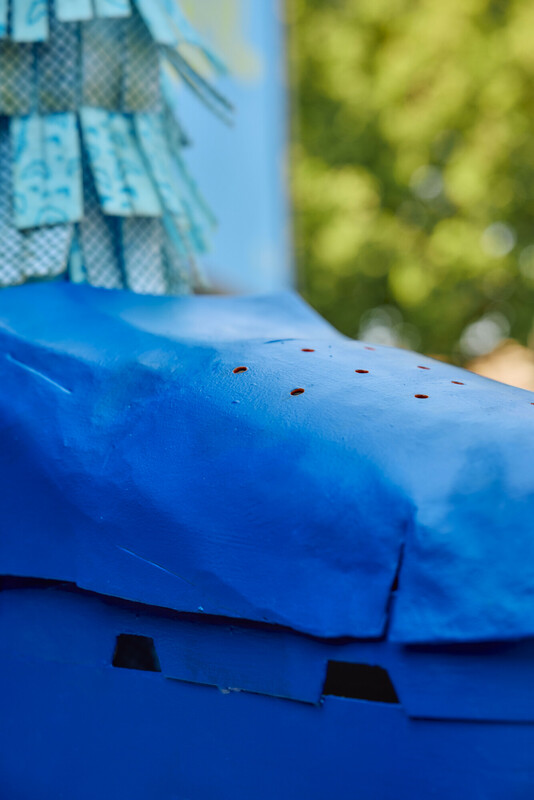
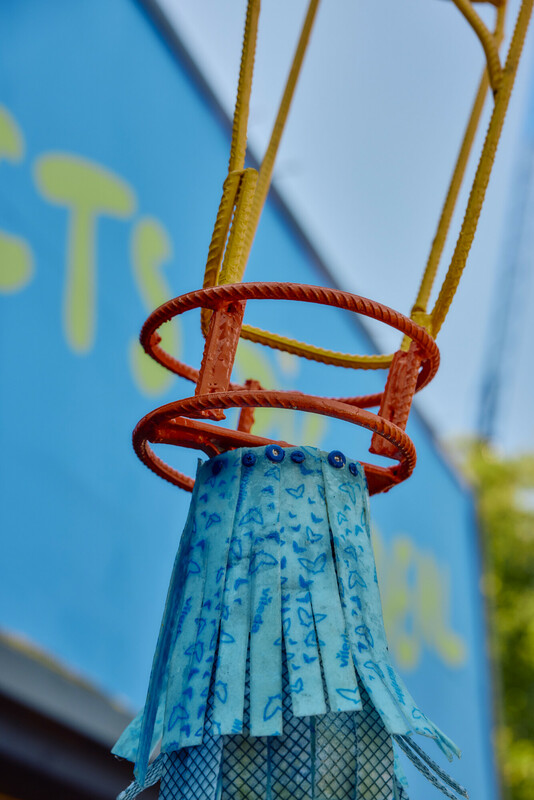
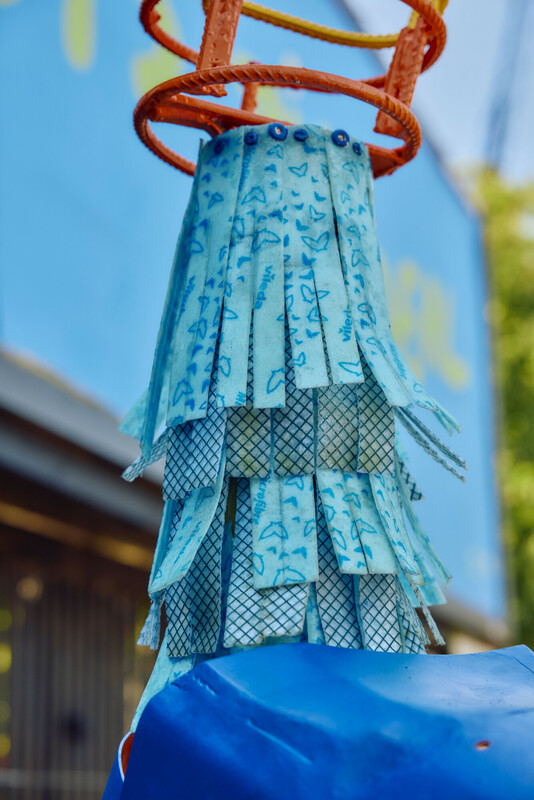
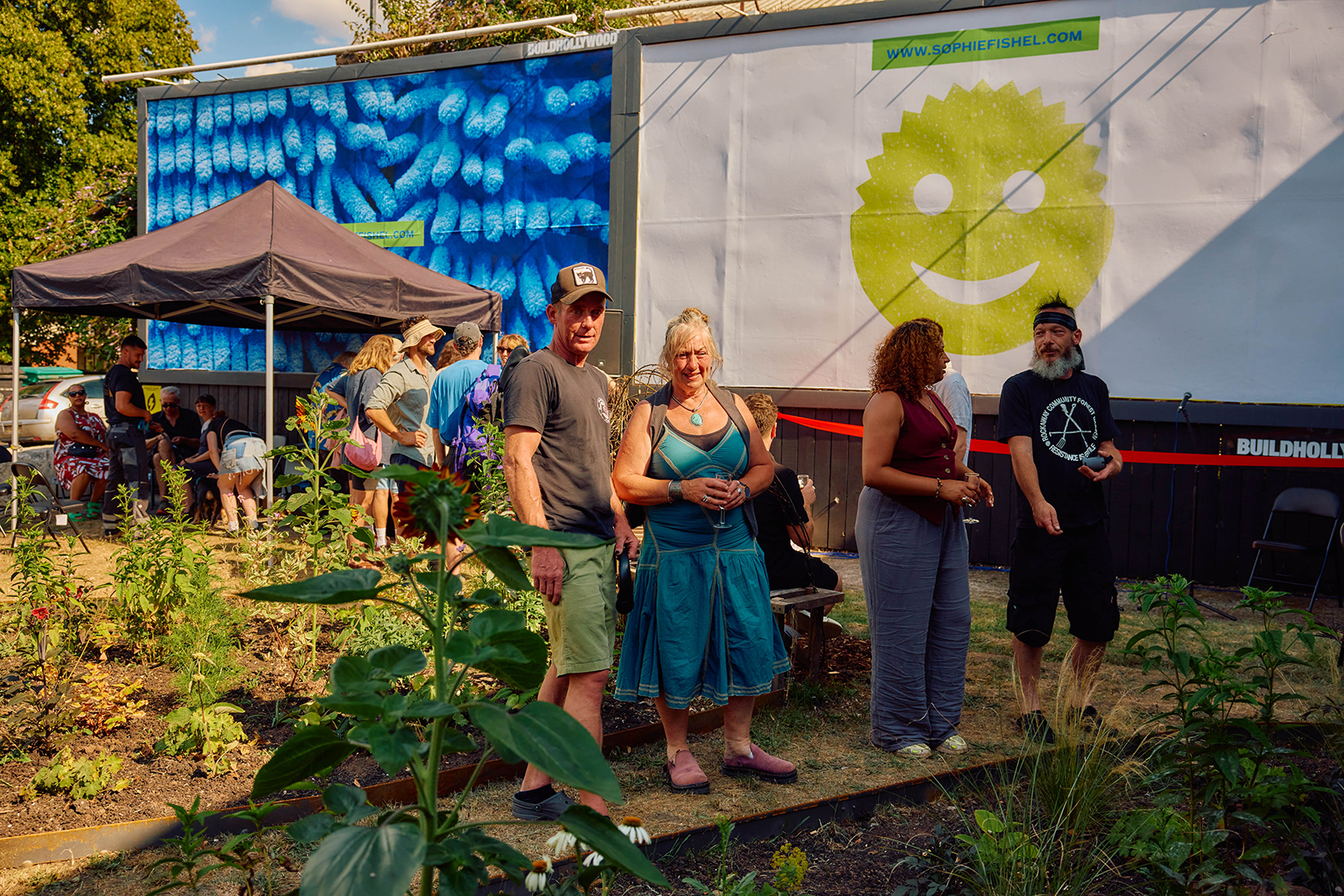
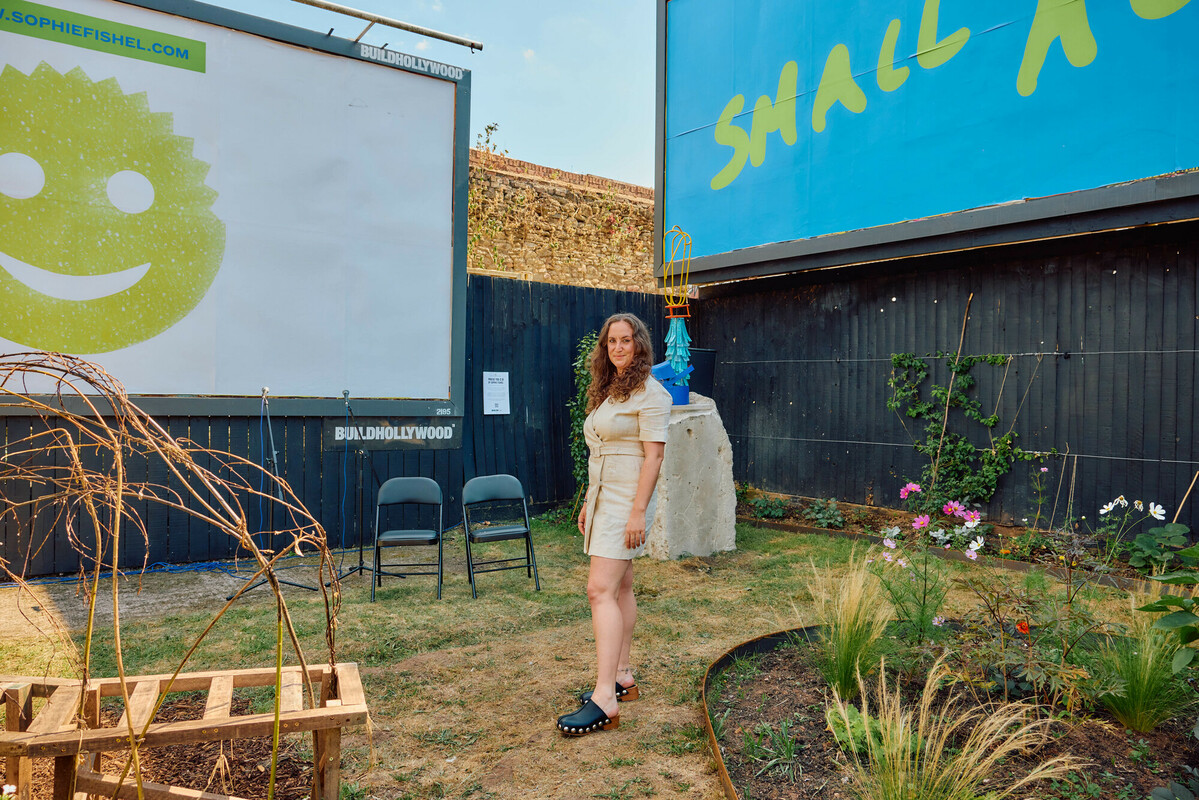
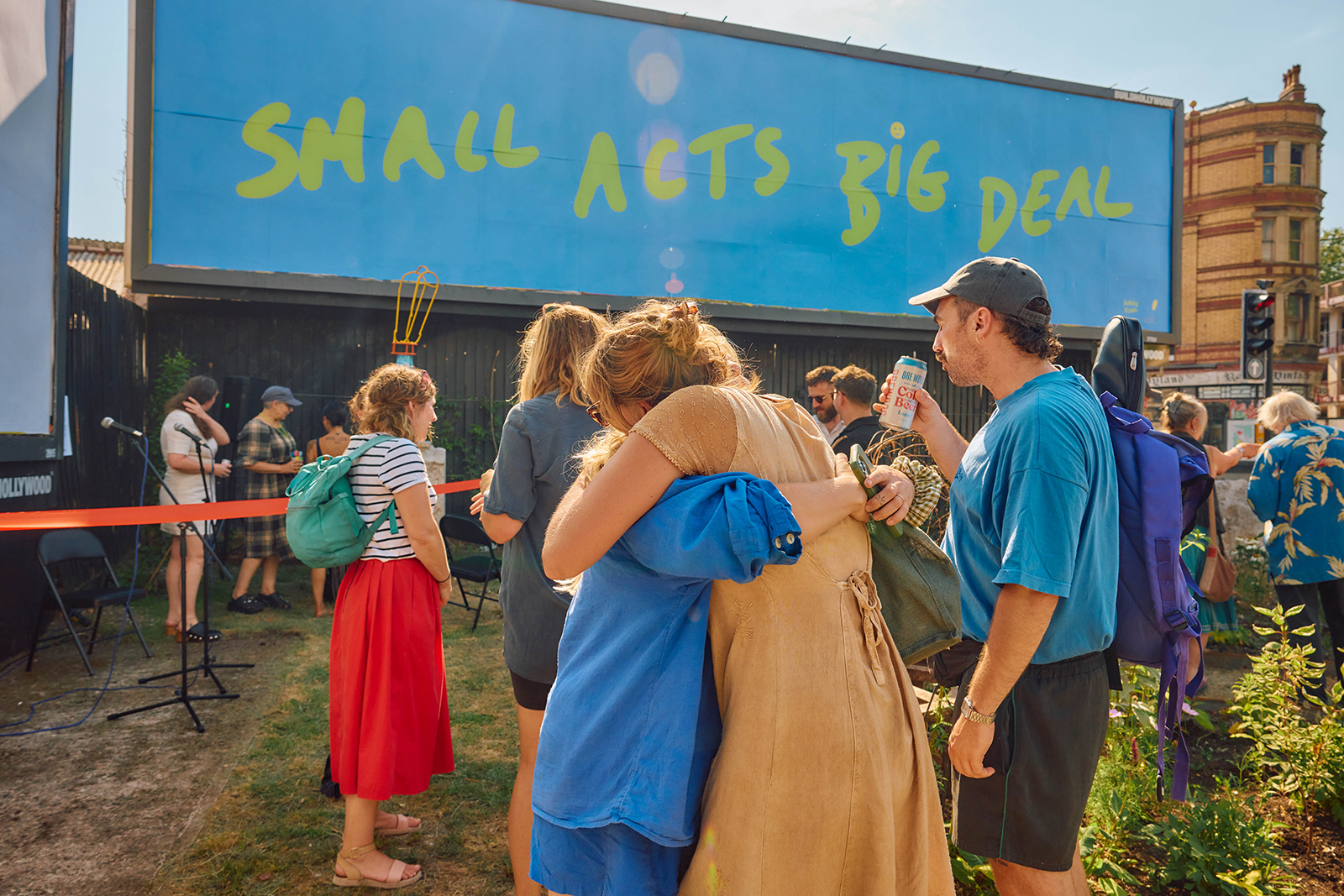
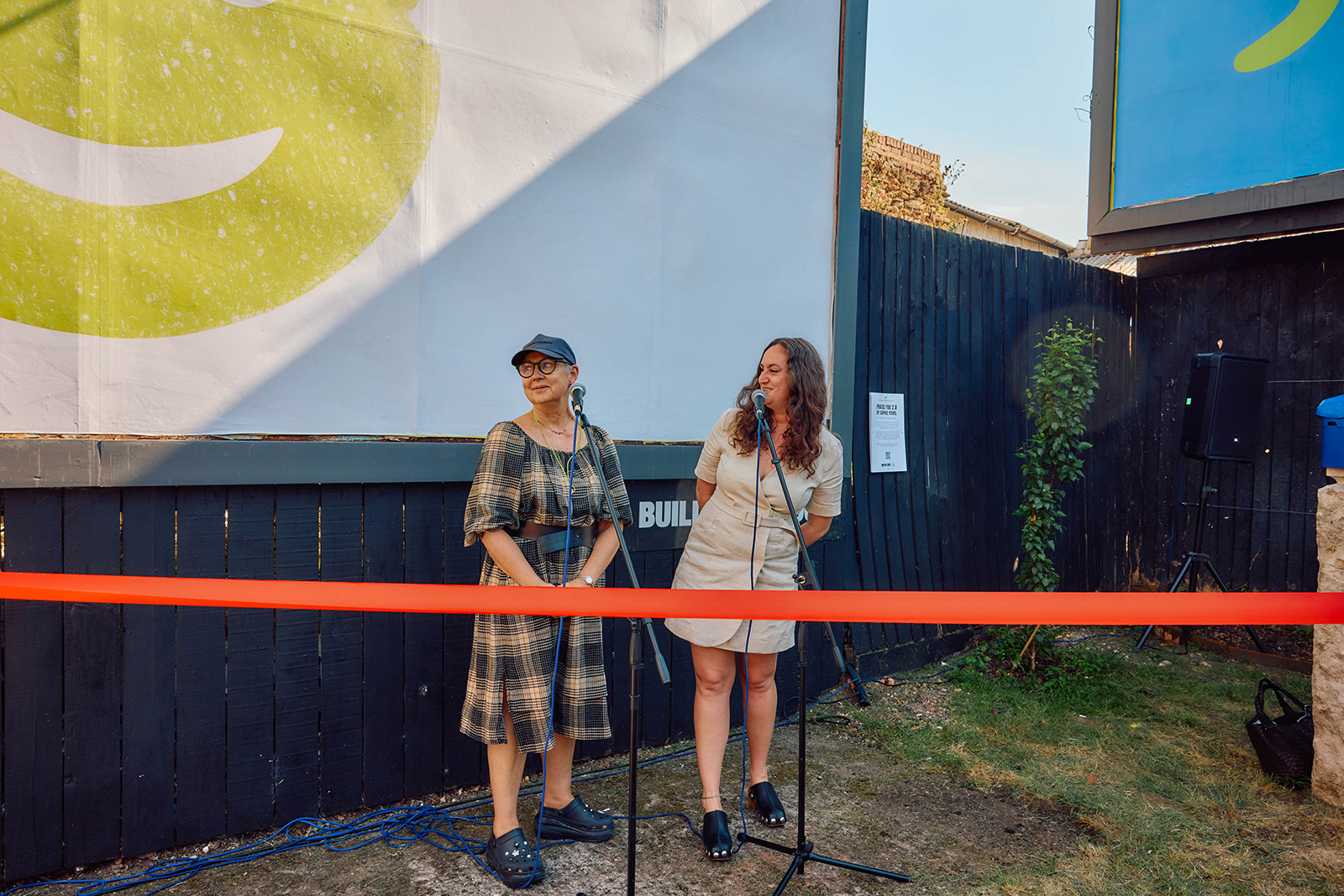
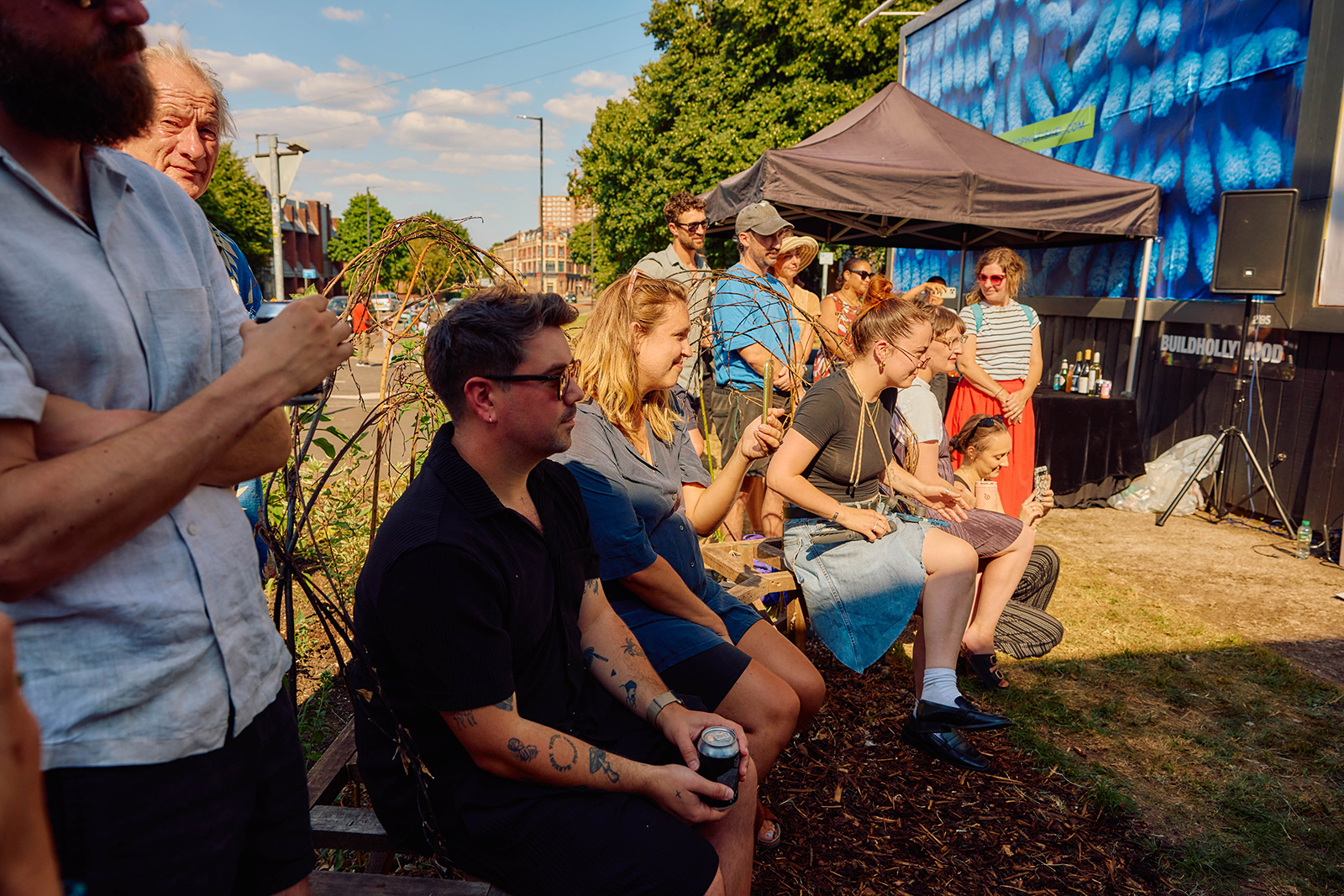
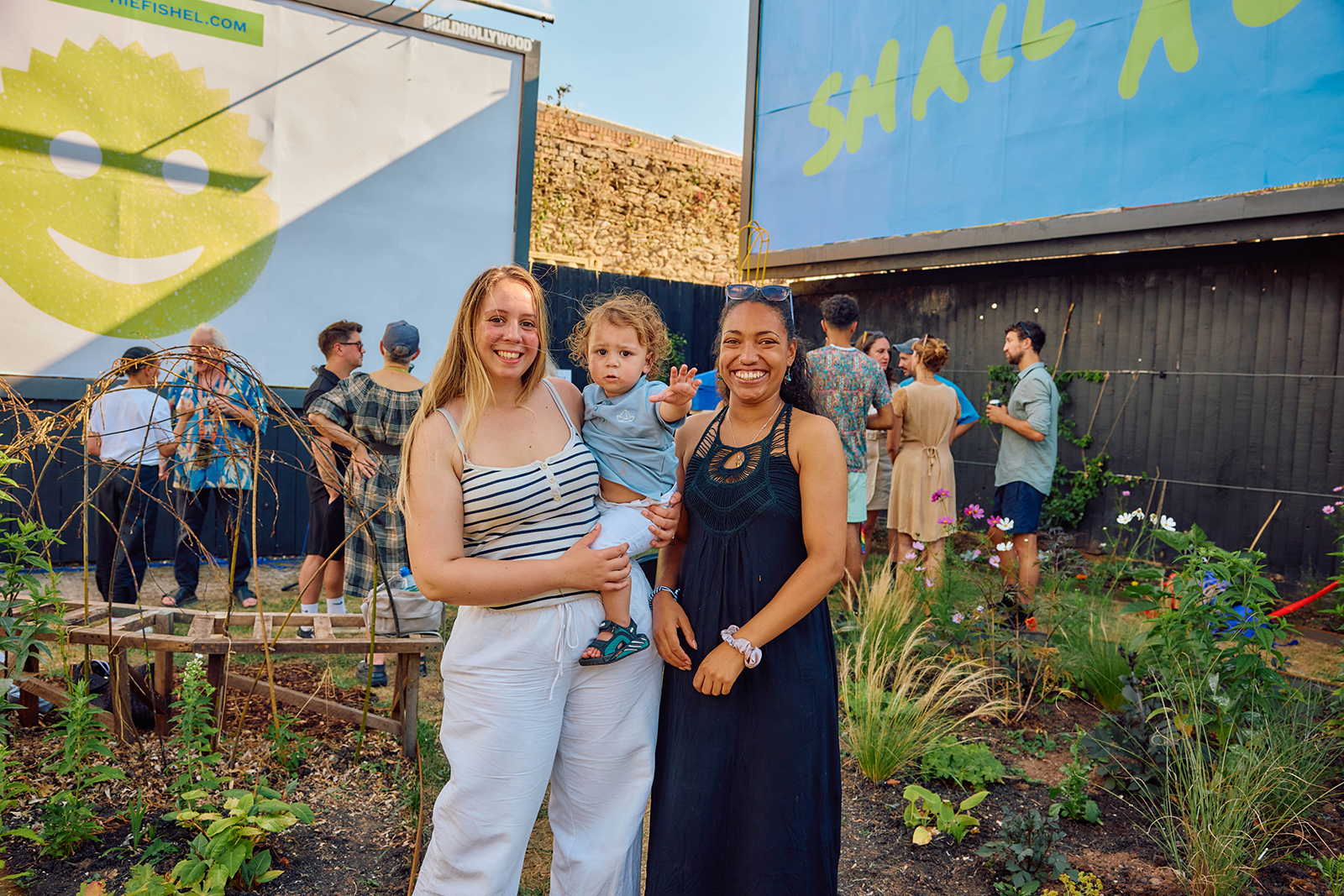
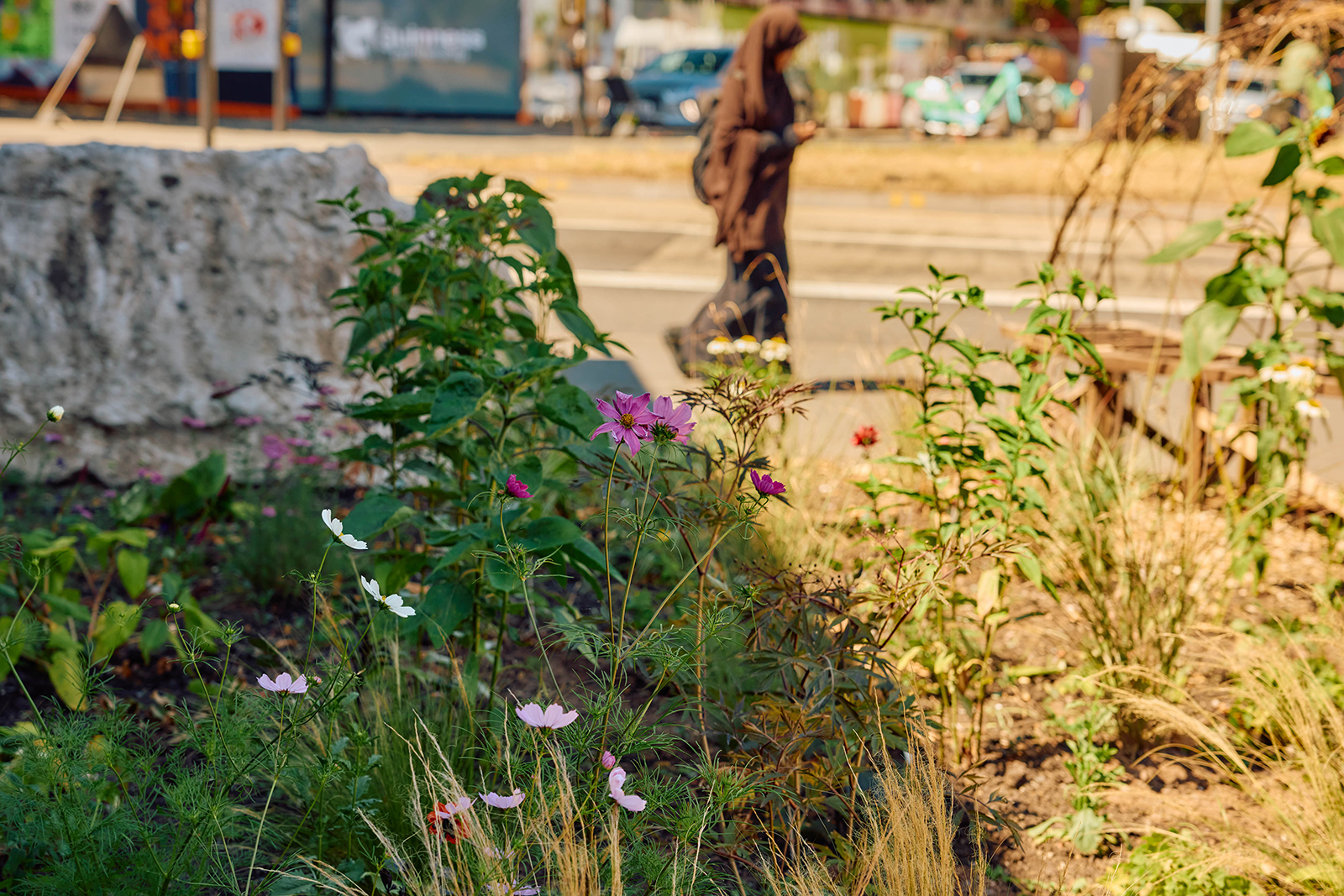 Photography by Emli Bendixen.
Photography by Emli Bendixen.
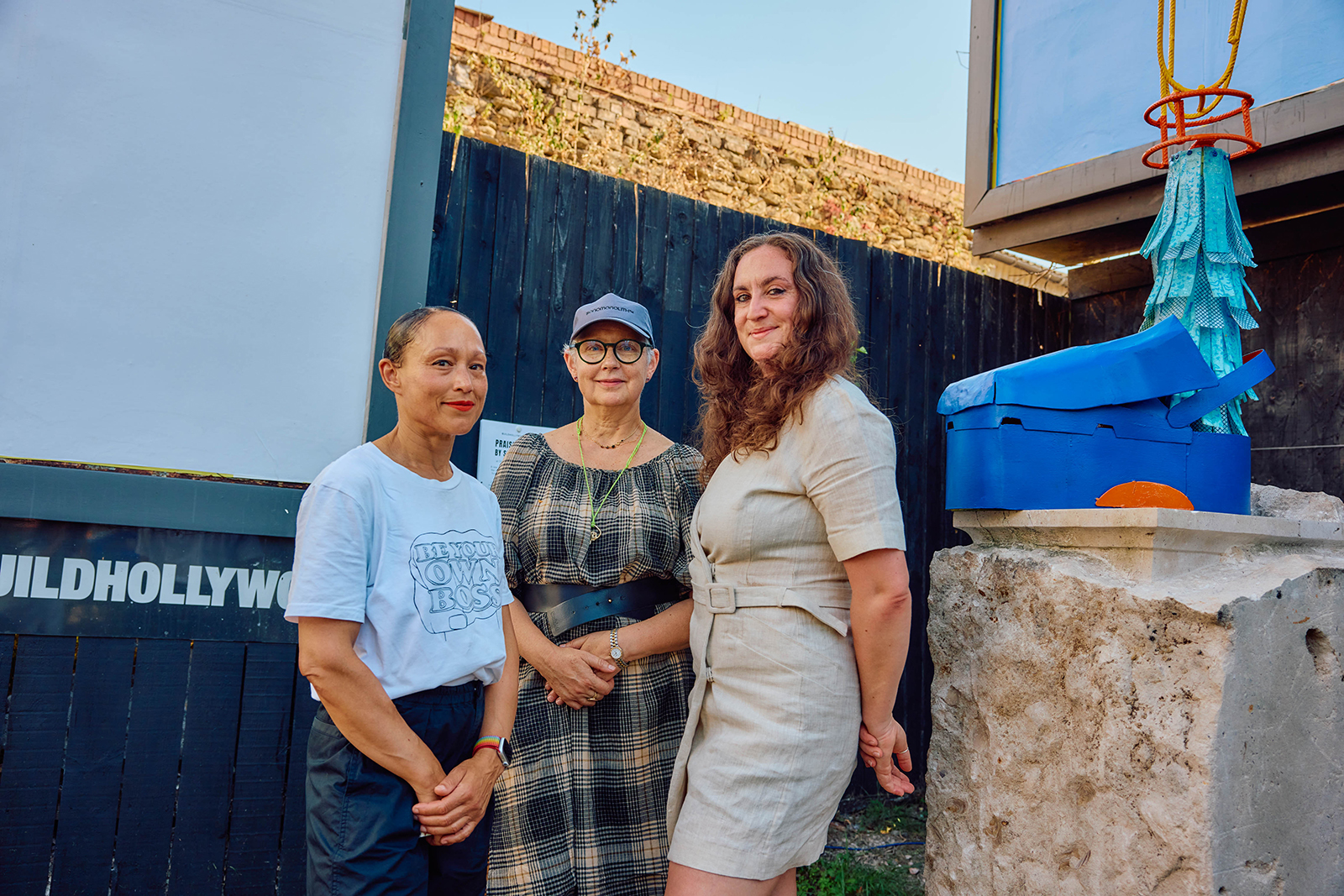 Previous artist Zoe Pencils, curator Sarah Station and latest artist Sophie Fishel. Shot by Emli Bendixen.
Previous artist Zoe Pencils, curator Sarah Station and latest artist Sophie Fishel. Shot by Emli Bendixen.









